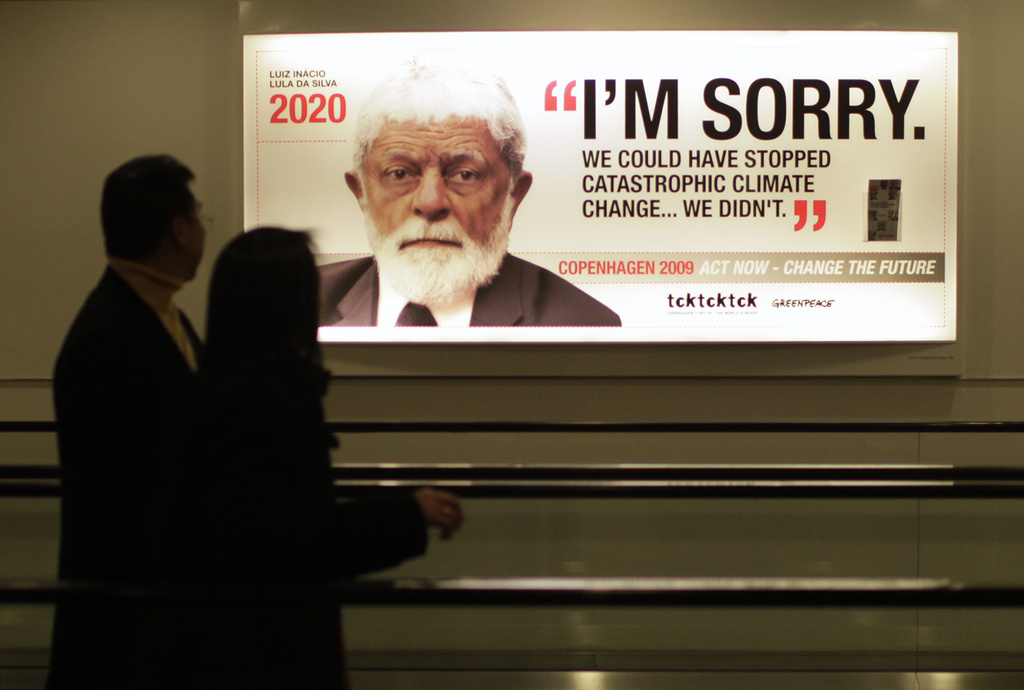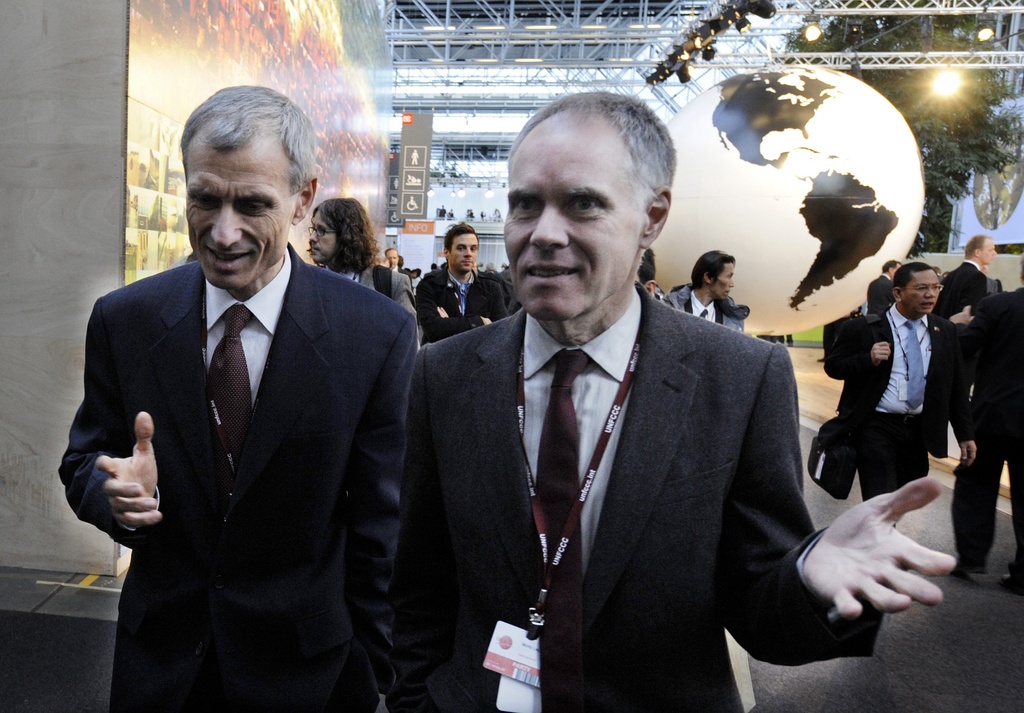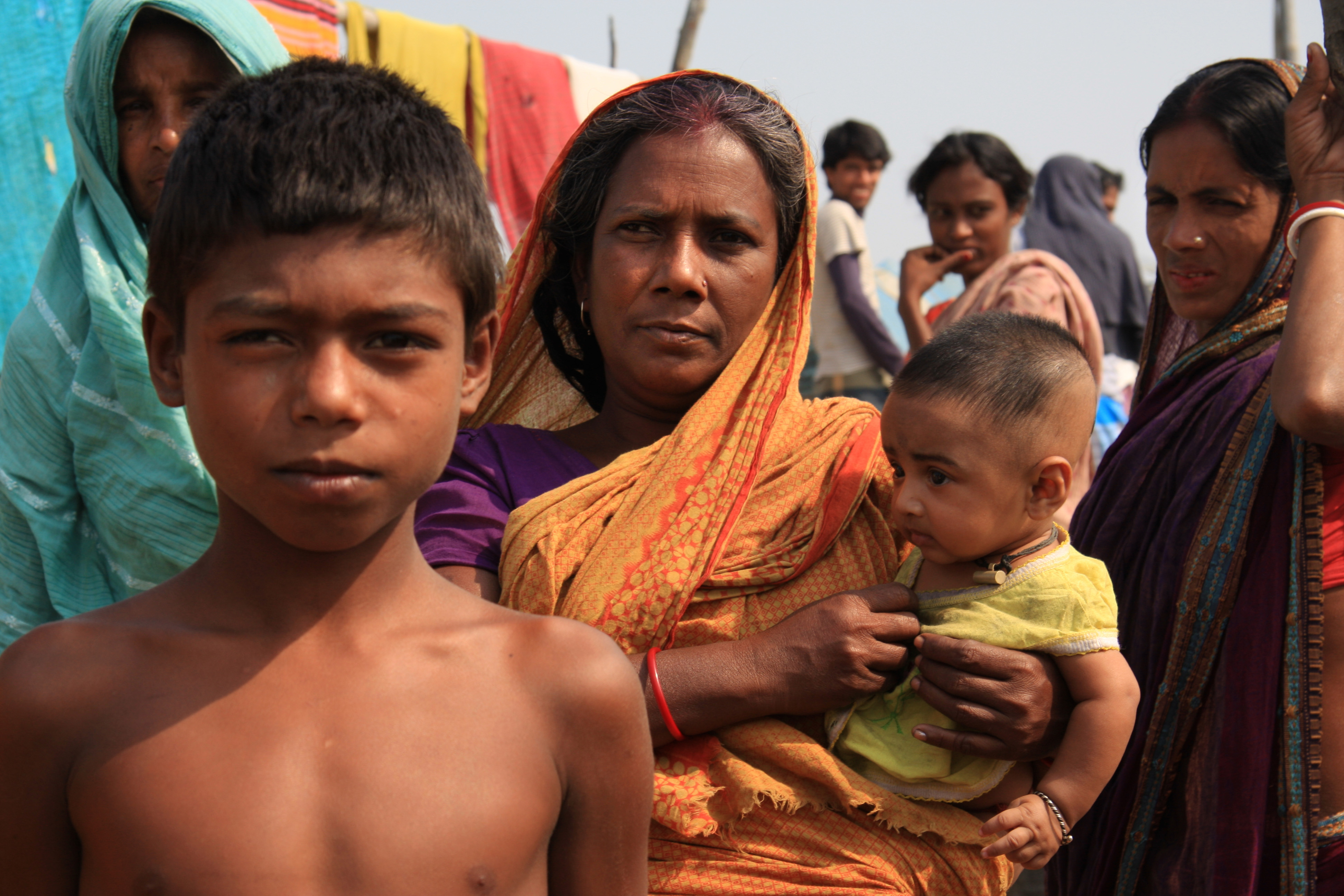“Chaotic drama” of Copenhagen roundly panned

Switzerland’s political parties, media and environmental groups have reacted to the outcome of the United Nations climate conference with incredulity and regret.
Environment Minister Moritz Leuenberger, who already said the conference had not lived up to its billing, on Sunday personally criticised Denmark’s prime minister as “coarse”.
In an interview with the SonntagsBlick newspaper, Leuenberger used a German expression to compare the organisational skills of Lars Rasmussen to those of a gauche Viking; he slammed the conference’s plenary sessions for having “no democratic style”.
Leuenberger, a Social Democrat, was joined by others within the political mainstream including the Greens, fellow Social Democrats and the centre-right Christian Democrats, who agreed that the summit yielded no result.
“We have seen what happens when the United States does not agree with China,” lamented Christian Democrat spokeswoman Alexandra Perina-Werz. The president of the Greens, Ueli Leuenberger, who is not related to the environment minister, said he was “extremely disappointed”.
“There was tremendous hope,” he said, but ultimately “no serious commitment at all”. The Social Democrats, equally bewildered with the conference’s outcome, nevertheless noted that countries agreed to try to limit global warming to two degrees Celsius.
The party wants to reduce greenhouse gas emissions by 30 per cent compared with 1990 levels; the Greens and environmental groups WWF and Greenpeace want a 40 per cent reduction.
No new policy
Switzerland had announced no new changes to its climate policy during the 12-day conference although Leuenberger himself suggested Switzerland cut its emissions by 40 per cent.
The centre-right Radical Party criticised Copenhagen’s failure to institute binding targets for reducing emissions. It wants to reduce greenhouse gases by 20 per cent but stresses that global warming can be solved through international cooperation.
The rightwing Swiss People’s Party opposes emissions targets that would jeopardise Swiss companies. Party president Tony Brunner said the world’s largest polluters – the US, China and India – have not done their share of the work.
The country’s newspapers held little back in their criticism.
“Political leaders have once again decided to postpone the moment for taking binding measures,” wrote Alexander Haederli in the French-language Le Matin Dimanche. “Would they have other priorities?”
Columnist Christophe Gallaz wrote: “Contradiction reigns. Everyone recognises the urgency for action against global warming but nobody takes it.”
“A chaotic drama”
The prestigious NZZ am Sonntag blamed realpolitik: “The Copenhagen summit did not fail because of the unwillingness of politicians but because of economic realities.”
“We know now from the [1992 summit in Rio de Janeiro] that all climate conferences follow the same scenario,” the newspaper wrote. Politicians have a “determination to fight against global warming but in the end everything remains as before.”
The SonntagsZeitung, in an editorial, compared the conference’s end to a “chaotic drama”. It noted that delegations from the US, China, India, Brazil and South Africa managed to hammer out an agreement in an impromptu meeting while others, including those in the European Union, were convinced the summit would deliver nothing.
Andreas Fischlin, a professor at the Federal Institute of Technology in Zurich and a member of the UN’s Intergovernmental Panel on Climate Change, says Copenhagen’s non-binding commitments fall short.
“The reductions in greenhouse gas emissions announced will not meet the objective of maintaining a temperature increase of less than two degrees by 2050,” he told the Swiss News Agency.
The view is shared by WWF Switzerland head Patrick Hofstetter, who called the conference’s conclusion a “black day for the Earth and for Switzerland”.
“Our country is severely affected by climate change and the status quo of Copenhagen exposes the world to the terrible threat of warming by four degrees,” he said.
swissinfo.ch and agencies
Nearly 200 countries met in Copenhagen from December 7 to December 19, trying to reach a global agreement to follow or extend the Kyoto Protocol, which runs out at the end of 2012.¨
The final deal does not require countries to take concrete action or set binding targets.
In the two years leading up to the conference, it was hoped Copenhagen would reduce greenhouse gas emissions so that temperatures would not rise globally by more than two degrees in comparison with the pre-industrial age.
The UN Intergovernmental Panel on Climate Change says industrialised countries need to reduce their emissions by 25% to 40% of their 1990 levels by 2020.
It has called on the rich nations to reduce their greenhouse gas emissions by 80% to 95% by 2050, and developing countries by 50%.
The Swiss government proposes that Switzerland should reduce its emissions by 20% of their 1990 level by 2020.
Switzerland said it was prepared to increase its target to 30%.

In compliance with the JTI standards
More: SWI swissinfo.ch certified by the Journalism Trust Initiative




You can find an overview of ongoing debates with our journalists here. Please join us!
If you want to start a conversation about a topic raised in this article or want to report factual errors, email us at english@swissinfo.ch.